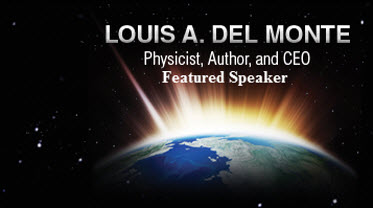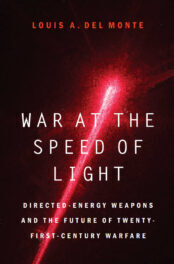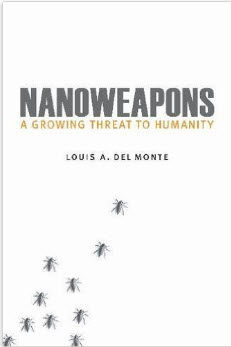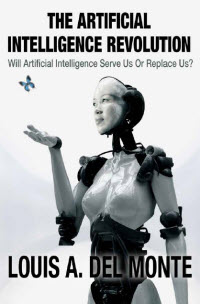Stephen Hawking, the world’s most famous scientist, made a startling statement on September 2, 2010, one week prior to the release of his new book, The Grand Design. He declared the “Almighty” irrelevant. Dr. Hawking believes that M-theory may hold the ultimate key to understanding everything, even the birth of the universe. Therefore, the need for religion becomes unnecessary. Of course, critics ask where M-theory came from. This is surprising since Dr. Hawking is on record saying, “Even if there is only one possible unified theory, it is just a set of rules and equations. What is it that breathes fire into the equations and makes a universe for them to describe?” To my mind, this is the right question.
Dr. Hawking is just one scientist, albeit highly famous. In general, what do scientists believe? Numerous studies, regarding scientists in the United States, indicate about a third are atheists, a third agnostic, and a third believe in God or a higher power. Similar studies of the general population suggest that three-fourths of the population believes in God or a higher power. (Survey 2005-2007 by Elaine Howard Ecklund of University at Buffalo, The State University of New York). What does this mean? A majority in the scientific community no longer look to religion for answers, but to their science.
The elegance and orderliness of scientific theories and mathematics becomes seductive and, in effect, replaces a need for a higher deity. However, this is not to say there is any unified conspiracy on the part of the scientific community to replace religion with science. In fact, without intention, science and religious ethics appear to have much in common. Einstein wrote in “Essays in Physics” (1950), “However, all scientific statements and laws have one characteristic in common: they are “true or false” (adequate or inadequate). Roughly speaking, our reaction to them is “yes” or “no.” The scientific way of thinking has a further characteristic. The concepts which it uses to build up its coherent systems are not expressing emotions. For the scientist, there is only “being,” but no wishing, no valuing, no good, no evil; no goal. As long as we remain within the realm of science proper, we can never meet with a sentence of the type: “Thou shalt not lie.” There is something like a Puritan’s restraint in the scientist who seeks truth: he keeps away from everything voluntaristic or emotional.”
However, regardless of the inherent ethics, shared by science and religion, one thing that stands in the center of this passionate debate is the existence of miracles. For something to be a true miracle, it must be outside the natural laws of science. In effect, natural law is suspended, and a miracle happens. A majority of scientists have difficulty believing this. Einstein summed this up in the following statement, “Development of Western science is based on two great achievements: the invention of the formal logical system (in Euclidean geometry) by the Greek philosophers, and the discovery of the possibility to find out causal relationships by systematic experiment (during the Renaissance).” To illustrate the difficulty of suspending natural laws, consider this example. If I told you apples fall up instead of down, would you believe me? Probably not. You probably would not even argue with me. My guess is that you would likely be dismissive, and ignore me. Yet, at the heart of various religions is the belief in miracles.
Is it possible to suspend natural laws? I suspect most scientists would answer a resounding “No!” However,what may have been considered a miracle just a hundred years ago is easily explained by today’s science. Television would be an example. In 1914, it would have appeared miraculous to watch television. It involved principles of science and engineering that were not understood at that time. I point this out because I don’t think that miracles can be used to prove or disprove the existence of a deity. Consider this example: Advanced aliens may have a science that appears to suspend natural laws. Perhaps they know how to create “worm holes” and travel vast distances, faster than the speed of light. To our observations, they may be violating another pillar of modern physics, namely the speed of light in a vacuum is the upper limit of velocity in the universe. However, simply because we do not understand their science does not mean that they have suspended natural law. They simply have learned secrets about nature we have not discovered. They know how to harness more energy than we do, which allows them to apparently violate nature laws and create miracles. This may make them appear god-like, but they are not the deity worshiped by the major religions of the world.
I judge that many in the scientific community believe that science will ultimately be able to answer all questions, and they are willing to replace religion with science. I do not share this view. Often, it appears that every significant scientific breakthrough results in an equally profound mystery. I have termed this irony of scientific discovery the Del Monte Paradox, namely:
Each significant scientific discovery results in at least one profound scientific mystery.
Here is an example to illustrate this paradox. Consider the discovery of the Big Bang theory. For this discussion, please view it as a scientific framework of how the universe evolved from a highly dense energy point to the universe we experience today. While the scientific community generally accepts the Big Bang theory, it is widely acknowledged that it does not explain the origin of the energy that was required to create the universe. Therefore, the discovery of the Big Bang theory left science with a profound mystery. Where did the energy originate to create a Big Bang? This is arguably the greatest mystery in science, and currently an area of high scientific focus.
In the final analysis, I don’t think it will come down to science proving or disproving a deity exists. I don’t think it will come down to science discovering a theory of everything. I think it will come down to what it has always come down to over the centuries, namely, faith. To answer the title question, can science replace religion, I offer these thoughts. If you believe that science will ultimately be able to answer every question and enable humans to become god-like, then it is logical to assume science can replace religion. If you believe that science will never be able to answer all questions and ultimately we will be left with a profound mysteries, then I think its possible to make a case that science will not be able to replace religion. Whatever your believe, I respect your right to formulate your own beliefs.












One must remember that “religion” is mans attempt to reach “up” & connect to god. God reaching down & entering into our lives is quite a different thing. Abba Father is not religion.